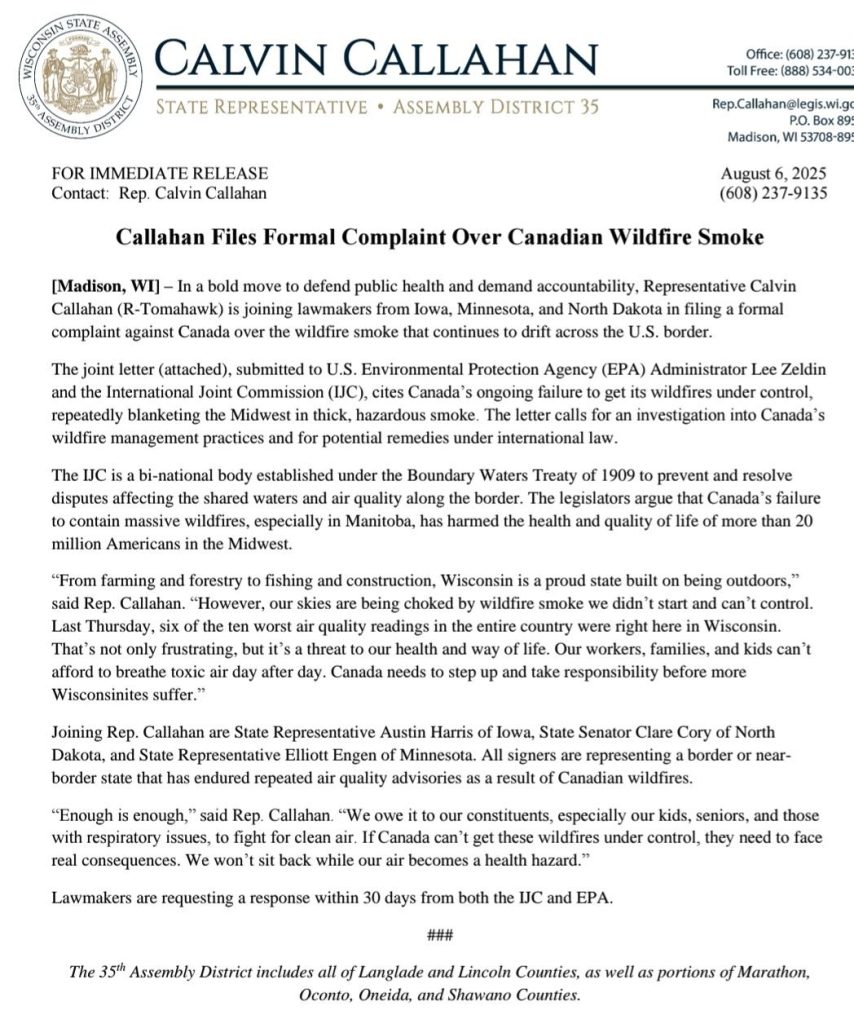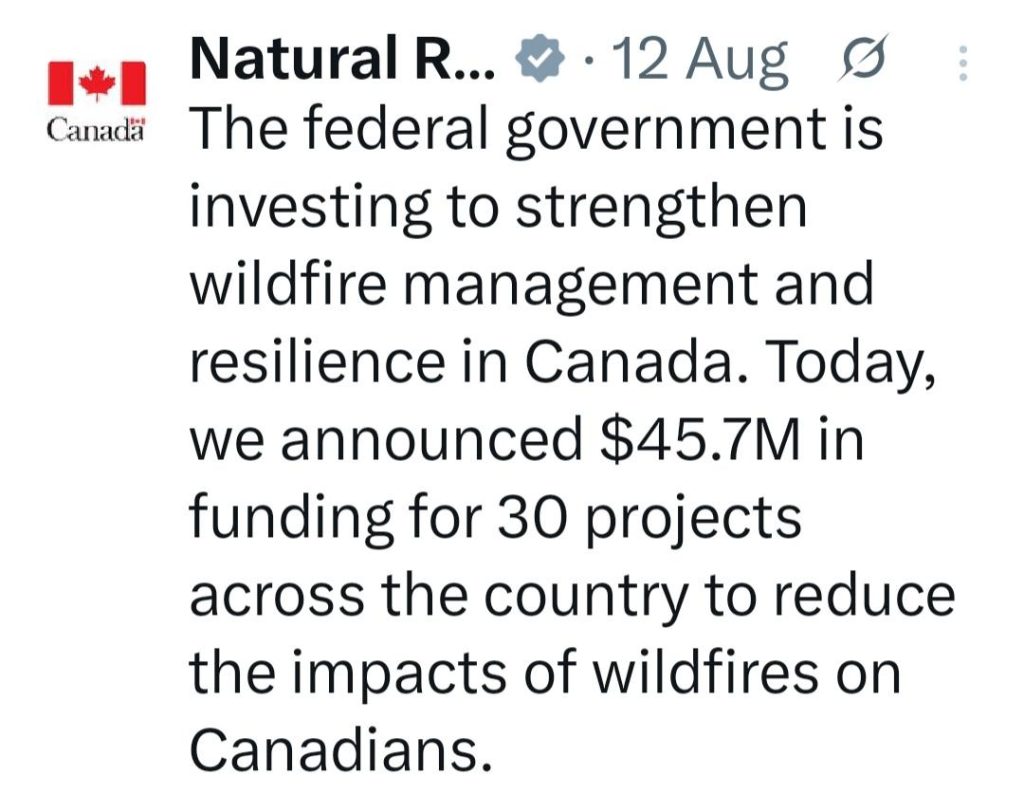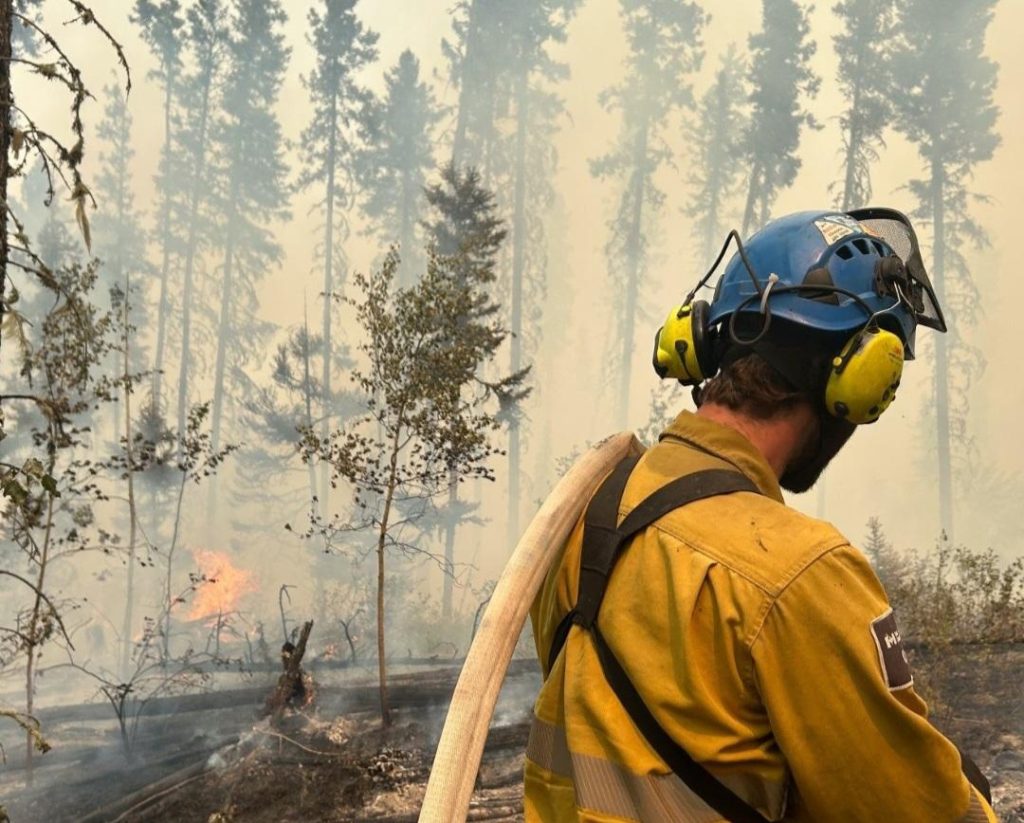
Source: Government of Canada
Canadian Wildfire Smoke in Wisconsin Ignites Political Blame Game
Some lawmakers point fingers north of the border as historic fires scorch Canada’s forests while experts say climate change is fueling the crisis
Residents across Wisconsin have spent much of the summer breathing smoky air as it drifts south from record-setting Canadian wildfires. The brunt of the disaster is impacting Canadians with thousands displaced as entire communities are evacuated. Yet, some U.S. politicians are choosing the blame game by responding with criticism instead of cooperation.
Wisconsin 7th District Congressman Tom Tiffany, along with other members of Congress, recently signed a sternly worded letter sent to Canadian officials. It questions their wildfire management practices.
State Representative Calvin Callahan of Assembly District 35 around Tomahawk, followed with his own complaint and is urging federal officials to investigate Canada’s response.

Former Wisconsin legislator and natural resources expert Fred Clark says those letters reveal more ignorance than insight. He joined Pat Kreitlow, host of Mornings with Pat Kreitlow, to discuss what’s fueling this crisis.
“It’s insulting to suggest to our neighbor to the north, while in the midst of a natural disaster, that they just need to ‘manage’ their forests better,” Clark says. “These are boreal forests in remote, roadless areas, the size of half the United States. They’re nearly impossible to access, and Canadians are already doing everything they can.”

Clark points to climate change as the real driver of the record fires. He cites prolonged drought and hotter summers that turn vast stretches of northern Canada into tinderboxes.
“The ignition sources will always be there. What’s changed is the climate. These extremes are happening everywhere, not just in Canada,” he explains.
Listen to the entire discussion here:
No episode found
Meanwhile, U.S. lawmakers who blame Canada for the smoke have simultaneously backed cuts to the U.S. Forest Service. They’ve also opposed renewable energy investments that would help reduce greenhouse gas emissions. More than 4,000 U.S. wildland firefighters have left their posts in recent months due to budget cuts and political battles. And Clark argues the irony is striking.
“At the very moment when we need more science, more resources, and more cooperation, we’re walking backwards,” he says. “And then telling Canada how to do it better.”

The haze may be an inconvenience and a health risk in Wisconsin. But for Canada, it is a historic disaster.
“We should be offering help to our neighbors, not lectures,” Clark says. “And we should be preparing for the day when these kinds of fires become our problem, too.”

Teri Barr is Civic Media’s Content Creator and a legend in Wisconsin broadcast journalism. Email her at teri.barr@civicmedia.us.
Want More Local News?
Civic Media
Civic Media Inc.
The Civic Media App
Put us in your pocket.
